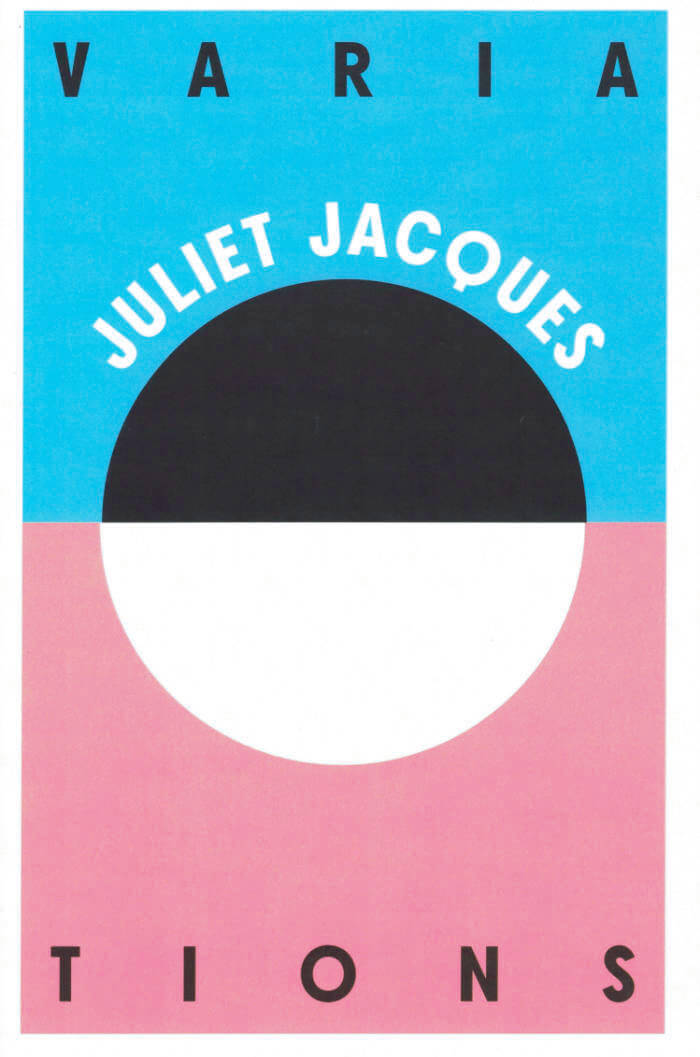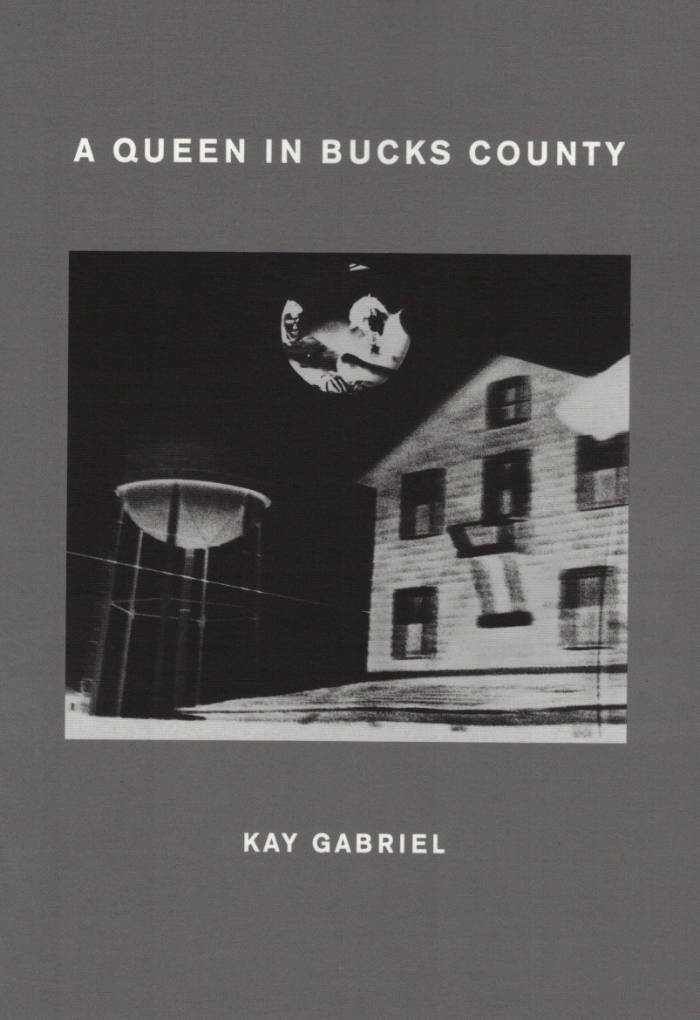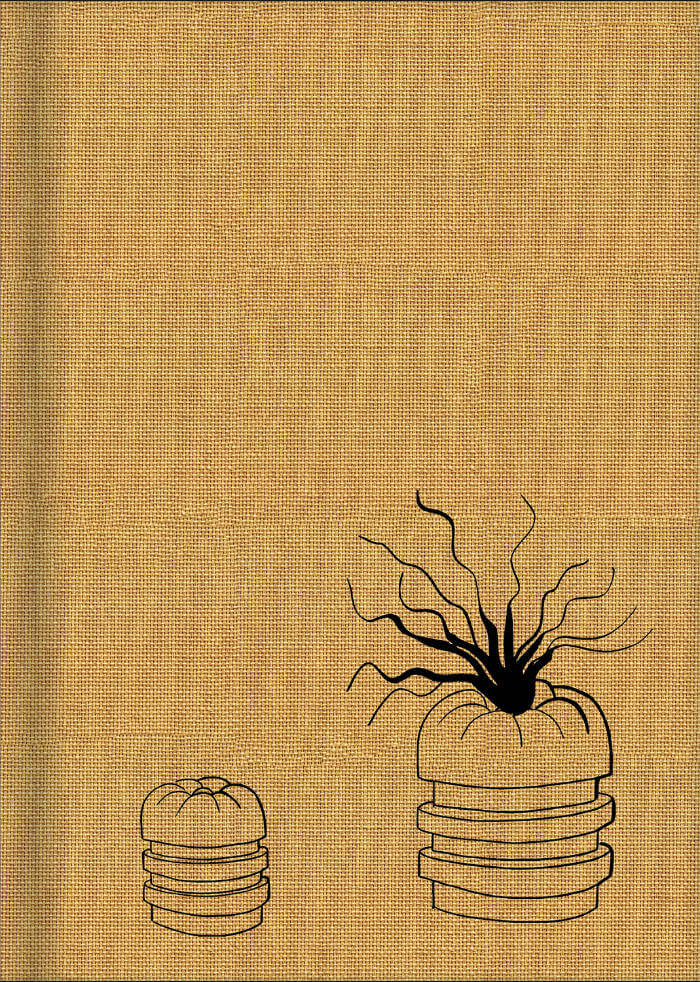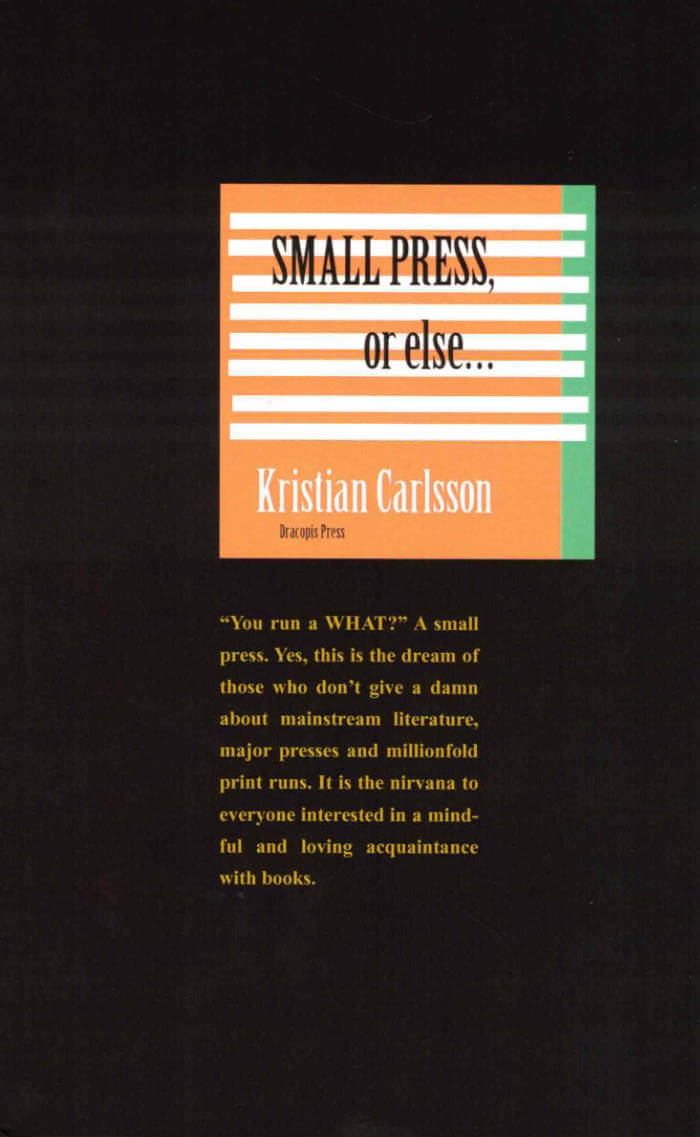Books
Books
in random order

A Finger in the Fishes Mouth
A facsimile edition of Derek Jarman’s sole, early, extremely rare poetry book A Finger in the Fishes Mouth, originally published in 1972.
Heavily illustrated from Jarman’s collection of postcards, the book combines text and visual imagery in a way which foreshadows his subsequent style as an artist and filmmaker. With the majority of the first edition having been destroyed by Jarman, this makes available a missing, significant piece of his oeuvre.
The facsimile retains the book’s original format, with a silver mirror cover, and an image accompanying each poem, printed in a striking green ink. Additional material comes in the form of a Foreword and Afterwords by So Mayer, Tony Peake and Keith Collins.

Oslo National Academy of the Arts
Segunda Vez: How Masotta Was Repeated
Publication documenting the research made by Dora García for a video project on Oscar Masotta, pioneer of Lacanian psychoanalysis in Latin America and influential art critic.
It features a selection of Masotta's writings as well as contextual essays on his work.Segunda Vez is an art research project centered on the figure of Oscar Masotta (Buenos Aires, 1930, Barcelona, 1979), an author of groundbreaking texts about the Happening, art, and dematerialization, a pioneer of Lacanian psychoanalysis in the Spanish-speaking world, and a happenista. The project has yielded a full-length and four medium-length films by Dora García, two Cahiers documenting the research, and this book. Segunda Vez: How Masotta Was Repeated offers a selection of Masotta's writings, including his early study of Argentinean author Roberto Arlt, as well as texts that contextualize Masotta's thought and broaden the reach of his reflections on the intersections between performance and psychoanalysis, art and politics.
Edited by Emiliano Battista.
Texts by Dora García, Oscar Masotta, Roberto Bolaño, Jorge Jinkis, Inés Katzenstein, Ana Longoni, Emiliano Battista, Aaron Schuster, Julio Cortázar.
English edition
13,5 x 21 cm (hardcover)
320 pages (color & b/w ill.)

Responses to Untitled (eye with comet) By Paul Thek
Responses to Untitled (eye with comet) (c.1985) by Paul Thek is the sixth and final anthology in a series that gathered responses to works of art made during a period of the ongoing AIDS Crisis, from the identification of the virus in 1981 to the introduction of life-saving drugs in 1996.
In this sixth iteration, responses were sought to the painting Untitled (eye with comet) by Paul Thek. The work was found in his storage after his death from AIDS in 1988.
List of contributors in order of appearance:
E.R. De Siqueira
Ben Estes
João Motta Guedes
Lucy Swan
Jon Rainford
Louis Shankar
Amy Evans Bauer
Hattie Morrison
Sammy Paloma
AN Grace
James Horton
Nick Wood
Sophie Paul
Jae Vail
Elizabeth Zvonar
Lars Meijer
Clay AD
Michel Kessler
Pablo Miguel Martínez
Emma Harris
Dylan McNulty-Holmes
Kitya Mark
Katherine Franco
Ainslie Templeton
Alistair McCartney
John Brooks
Jesse Howarth
jimmy cooper
Felix Pilgrim
Nicholas Chittenden Morgan
Murphy O’Neir
Rachel Cattle
Isabel Nolan
Susan Finlay
Ted Simonds
Brooke Palmieri
Kate Morgan
Ashleigh A. Allen
Diogo Gama
JP Seabright
Hugo Hagger
Amanda Kraley
Brendan Cook
Matt Bailey
Charlotte Flint
Rodney Schreiner
Lucy Price
Morgan Melhuish
Jordan Weitzman
Jaakko Pallasvuo
Alex Fiorentino
Harald Smart
Marguerite Carson
loll jung
Richard Porter
Nicholas Kalinoski
Hedi El Kholti
Edmund Francis English
Ted Bonin

Entropia Vol. 1 & 2
Entropia (vol. I & II) – written by William Kherbek and edited in collaboration with Jack Clarke – is a publication which seeks to recount and re-examine a decade of artistic curation, production, and critique between London, Berlin, and other urban art centres from 2010 to 2020.
Comprised of two volumes, this publication contains a compendium of over one hundred reviews and interviews with luminaries of contemporary art (Vol I), as well as a speculative attempt to create a newly generated algorithmic art(ificial) critic (Vol II). Together they serve to document, excoriate, and theorise an art world which is simultaneously hegemonic and precarious, complicit and constructive, driven by values, yet fed by extraction, all filtered through Kherbek’s precise, aphoristic, acerbic, lens.
The publications include contextual contributions from both Josie Thaddeus-Johns, writer for the New York Times, The Financial Times, Frieze; and Rozsa Farkas, director of London-based gallery Arcadia Missa.

Ticking Stripe
A new collection of writings by the composer and mathematician Spencer Gerhardt, considering among other topics the rich points of contact between minimalist musical aesthetics and intuitionistic mathematics.
Noted composer and mathematician Spencer Gerhardt presents Ticking Stripe, a groundbreaking collection of essays linking notions of continuity and construction across the boundaries of math, art, music and philosophy. Gerhardt offers new, and deeply informed interpretations of the 1960s New York avant-garde, viewed through the lens of trailblazing artists such as La Monte Young, Marian Zazeela, Catherine Christer Hennix, Henry Flynt and Tony Conrad.
Ticking Stripe pairs the spirit of L. E. J. Brouwer—a mathematician who brilliantly, and controversially, sought to reconstruct the continuum in his own philosophical terms called intuitionism—with the ambitions of pioneering minimalists who combined continued constructions, idealized processes of introspection, and conceptual world-building with a host of philosophical, scientific, and spiritual concerns. Informed by his own work as a professional mathematician and composer, Gerhardt explores the depths of these disparate traditions, finding unlikely areas of commonality. Spanning over two decades, these essays feature rich historical explorations of minimalist music, writing on contemporary art, and work in logic and algebraic groups, all approached with rare clarity and technical aplomb.
Spencer Gerhardt is a composer and mathematician. His music engages constructive, introspective and romantic traditions. Gerhardt has written solo piano music, piano based songs, and works of minimalism. He studied raga with La Monte Young and Marian Zazeela, piano performance with Sung-Hwa Park, and has collaborated with artists such as Thomas Ankersmit and Charles Curtis.

Variations
Variations is the debut short story collection from one of Britain’s most compelling voices, Juliet Jacques. Using fiction inspired by found material and real-life events, Variations explores the history of transgender Britain with lyrical, acerbic wit.
Variations travels from Oscar Wilde’s London to austerity-era Belfast via inter-war Cardiff, a drag bar in Liverpool just after the decriminalisation of homosexuality, Manchester’s protests against Clause 28, and Brighton in the 2000s. Through diary entries of an illicit love affair, an oral history of a contemporary political collective; a 1920s academic paper to a 1990s film script; a 1950s memoir to a series of 2014 blog posts, Jacques rewrites and reinvigorates a history so often relegated to stale police records and sensationalist news headlines.
Innovative and fresh, Variations is a bold and beautiful book of stories unheard; until now.

Salvation
Salvation is a previously-unpublished artist book by Jimmy DeSana that he conceptualized shortly before his death in 1990. The publication contains 44 of the artist’s late photographic abstractions that quietly and poetically meditate on loss, death, and nothingness. Depicted within the works are images of relics, body parts, flowers, and fruits that DeSana altered using collage and darkroom manipulations to create pictures that are both intimate and other-worldly. Salvation provides a nuanced and sophisticated counterpoint to the prevailing work around HIV/AIDS at the time, which tended to favor bold political statements.
Variations of many of the works in this book were first presented at DeSana’s last show with Pat Hearn Gallery in 1988. Shortly thereafter, the artist began assembling a maquette of Salvation, using black and white images as place holders for the color works that he intended to comprise the final layout of the publication. Sadly, he was unable to fully realize Salvation in his lifetime, but on his deathbed, he dictated instructions to his longtime friend Laurie Simmons for completing the work; instructions which she noted on each page of the single-copy maquette. With these notes, Simmons was able to match extant slides and sequencing. Simmons’ studio chose color gels from DeSana’s archive for each corresponding black and white image in the assembly of the publication. Thankfully, due to this recuperative work, Salvation—long-considered to be DeSana’s last major work—is now available for the first time, with every step taken to honor and embody DeSana’s original vision.
Jimmy DeSana (1949-1990) grew up in Atlanta, GA, and received his bachelor’s degree from the Georgia State University in 1972 before relocating to New York’s East Village in the early 1970s. Recent solo and two-person exhibitions include The Sodomite Invasion: Experimentation, Politics and Sexuality in the work of Jimmy DeSana and Marlon T. Riggs, Griffin Art Projects, Vancouver, Canada, 2020, and Remainders, Pioneer Works, Brooklyn, NY, 2016. DeSana’s work can be found in numerous public collections including the Institute of Contemporary Art, Boston, MA; Metropolitan Museum of Art, New York; Museum of Contemporary Art, Chicago, IL; Museum of Fine Arts, Houston, TX; Museum of Modern Art, New York, NY; and the Whitney Museum of American Art, New York, NY, among others. A major retrospective of DeSana’s work was exhibited at the Brooklyn Museum, New York, in 2022, accompanied by a catalogue co-published by the Brooklyn Museum and DelMonico Books.

Death Industrial Complex
Candice Wuehle’s Death Industrial Complex is a meditation on the cultural obsession with the bodies of dead women and an occult invocation of the artist Francesca Woodman. Like Woodman’s photographs with their long exposures and blurred lenses, this book is haunted and haunting, hazy yet devastatingly precise. These are poems as possessions, gothic ekphrases, dialogues with the dead, biography and anti-biography, a stunning act of “cryptobeauty.”

We Want Everything
It was 1969, and temperatures were rising across the factories of the north as workers demanded better pay and conditions. Soon, discontent would erupt in what became known as Italy’s Hot Autumn. A young worker from the impoverished south arrives at Fiat’s Mirafiori factory in Turin, where his darker complexion begins to fade from the fourteen-hour workdays in sweltering industrial heat. His bosses try to withhold his wages. Our cynical, dry-witted narrator will not bend to their will. “I want everything, everything that’s owed to me,” he tells them. “Nothing more and nothing less, because you don’t mess with me.”
Around him, students are holding secret meetings and union workers begin halting work on the assembly lines, crippling the Mirafiori factory with months of continuous strikes. Before long, barricades line the roads, tear gas wafts into private homes, and the slogan “We Want Everything” is ringing through the streets.
Wrought in spare and measured prose, Balestrini’s novel depicts an explosive uprising. Introduced by Rachel Kushner, the author of the best-selling The Flamethrowers, We Want Everything is the incendiary fictional account of events that led to a decade of revolt.
Translated by Matt Holden
Introduction by Rachel Kushner

Fort Beau
Fort Beau – verhalen van beginnen en eindes, een nieuw boek van kunstcriticus en curator Pieter Van Bogaert ontstaan aan zee, is het eerste in de Bibliotheek van de Noordzee: een nieuwe reeks van Kunstencentrum KAAP over kunst en samenleving.
Fort Beau heeft twee beginnen en eindes: één van elk op de linkerpagina’s en nog eens hetzelfde maar anders – als een vage kopie – rechts. Van de kunst van het lopen gaat het naar lopen als kunst. Van het strand in Oostende gaat het naar het Kaaitheater in Brussel. Van de huiskamer naar de wereld. Van de Palestijnen naar de sans-papiers. Twee boeken naast elkaar die zich in een gedurfde vormgeving van Maaike Beuten ontwikkelen en besmetten tot één verhaal.

How to love a homeland
Russian writer and philosopher Oxana Timofeeva was born and grew up in various parts of the USSR. The book explores the difficulty of reducing one’s sense of homeland to one’s country alone, the philosophical interconnectedness of movement and rootedness, our plant and animal souls, and how we need to reimagine our desired, fictional if need be, homelands. The book interweaves vignettes from Timofeeva’s childhood across different parts of the USSR with a philosophical discussion of ideas on homeland in the thought of Brecht, Deleuze and Guattari, and other main figures of literature and philosophy.
Oxana Timofeeva is Sc.D., professor at “Stasis” Center for Philosophy at the European University at St. Petersburg, leading researcher at Tyumen State University, member of the artistic collective “Chto Delat” (“What is to be done”), deputy editor of the journal “Stasis”, and the author of books History of Animals (London: Bloomsbury Academic, 2018; Maastricht: Jan van Eyck, 2012), Introduction to the Erotic Philosophy of Georges Bataille (Moscow: New Literary Observer, 2009), Solar Politics(forthcoming, Polity, 2022).
Commissioned and published by Kayfa ta (2020)
Translation from Russian by Maria Afanasyeva
Design template by Julie Peeters
Cover illustration by Jumana Emil Abboud

A Queen in Bucks County
An epistolary sequence about sex, exchange and social space set along the Northeast Corridor.
In A Queen in Bucks County, our protagonist Turner, who both is and is not the writer, makes his pleasurable way through miserable space. Men "buy him things," lovers drive across state lines, users down volatile cocktails to see what happens, landlords turn tenants out, and Turner writes poetic tracts to friends about it. Part pornography, part novel, all love letter, A Queen in Bucks County is an experiment in turning language upside down to see what falls out.
2023 LAMBDA LITERARY AWARD FINALIST

The Spiritual Hunt
A long lost poem purportedly by Rimbaud is finally made available in English.
Referenced only in a few letters of Paul Verlaine, The Spiritual Hunt is Arthur Rimbaud's forgotten masterwork, a poem in five parts that explored the mystic philosophy that guided the young poet's heart and hand. Considered lost for years, a typewritten manuscript appeared in Paris in the late 1920s, circulating around a close-knit group of booksellers, poets, and playwrights. Yet it wasn't until 1949 that Mercure de France took the initiative to publish the unauthenticated galley and unleashed a literary controversy that shook France. Sides were drawn, with Andre Breton leading the charge of forgery, calling the work an utter hoax, and others defending it as legitimate and an essential key to understanding Rimbaud and his work. Bookstores were raided for copies, critics were skewered in journals, and tempers flared on radio and in print, but no conclusive judgement could be drawn and Mercure de France withdrew the work from publication and pulped all the copies they could find.
Now, seventy-five years after its initial imbroglio, The Spiritual Hunt is available in English for the first time with a facsimile letterpress edition of the original. Featuring Pascal Pia's original introduction along with an edifying afterword by translator Emine Ersoy.

Fleshed Out For All The Corners Of The Slip
This major new work is thought, spirit and sense (in every sense) ‘fleshed out’ in ‘all the corners’ by being unmade – as poetry, as music, as (black and white) images, and as attention to the interconnected circuitries the One has with the social, historical and environmental ‘to / link us outside’. These elements are no sooner embodied than they slip, shift, carousel and spin away. As Goodwin puts it: ‘no longer a bodily reference to an individual subject’s presence; not obliterated but made into an element, air or breath, as black poetry’s condition of im/possibility for, and refusal of subjecthood.’ Hence it is that this poetry achieves ‘flightacross precipitous intransigence’ (Will Alexander), perhaps flights of manifestations of spirit, ‘ghostly crowned / apogees’, like duppies, which is to say, sacred. Hence too the work’s urgent task to avoid ‘thingification’: the conscription and exploitation of thought &/or body for neo-colonialist, which is to say, neo-liberal ends. Goodwin eschews identity politics for a phenomenology that is more properly radical in both the etymological sense of the term – rooted and vital to life – as well as situated within a history of experimental black thought which, simultaneously, rejects normative traditions of meaning, signification and value. Both meanings are central to the anti-racist core of this important work – ‘when i don’t know you but you must know who i am’ – in a poetry that’s as breath-taking as it is breath-making. ‘Inexpressibly full with what words can do’.
— Emily Critchley, author of Home (London: Protoype, 2021), Arrangements (Shearsman Books, 2018) and Ten Thousand Things (UEA: Boiler House Press, 2017)
James Goodwin is a poet doing a PhD in English and Humanities at Birkbeck, University of London with a thesis on the blacksociopoetics of marronage, breath, sacrality and emanation. His pamphlet, aspects caught in the headspace we’re in: composition for friends, was published by Face Press; and his debut book, Fleshed Out For All The Corners Of The Slip, is forthcoming with the87press. He serves on the Editorial Advisory Board for the Journal of British and Irish Innovative Poetry.

Elika Hedayat
First monograph of the Franco-Iranian artist.
This monographic catalogue looks back over the first 15 years of work by Iranian artist Elika Hedayat through more than 110 reproductions. Two of these are on a 1:1 scale, and a detailed set offers a comparison of the dimensions of the works in relation to each other.
Françoise Docquiert introduces the issues at stake in her practice with an essay, complemented by an interview with Joana P.R. Neves.
"Elika is a Parisian-Iranian artist. This cultural blend is slightly ironic though very significant, as it nourishes her artistic work and practice. Inspired by her childhood, her life, and the violence in her native country, she makes films, videos, and drawings always filled with beauty, scathing humour and cruelty." - Annette Messager
Born 1979 in Tehran, Elika Hedayat lives and works between Paris and Tehran. Arriving in France in 2004, she was admitted to the École Nationale Supérieure des Beaux-Arts in Paris in Annette Messager's studio, from wich she graduated with the Jury's congratulations in 2008.
For her works, Elika Hedyat often uses testimonies and experimental documentaries stage in a dreamlike and imaginary universe. Her stories are contemporary and her characters are real. All of her works revisits historical references, transferring them to the field of personnal experience, mainly using the various possibilities of her repertoire as a narrative document and memory retrieval tool. Reality, memory and imagination come together in a personal story under different forms : drawing, video, documentary, painting and performance.
Text by Françoise Docquiert.
Interview with Elika Hedayat by Joana P. R. Neves.

Or, on Being the Other Woman
Throughout this book-length poem, Simone White considers the dynamics of contemporary black feminist life, attesting to the narrative complexities of writing and living as a black woman and artist.
In Or, on being the other woman, Simone White considers the dynamics of contemporary black feminist life. Throughout this book-length poem, White writes through a hybrid of poetry, essay, personal narrative, and critical theory, attesting to the narrative complexities of writing and living as a black woman and artist. She considers black social life—from art and motherhood to trap music and love—as unspeakably troubling and reflects on the degree to which it strands and punishes black women. She also explores what constitutes sexual freedom and the rewards and dangers that come with it. White meditates on trap music and the ways artists such as Future and Meek Mill and the sonic waves of the drum machine convey desire and the black experience. Charting the pressures of ordinary black womanhood, White pushes the limits of language, showing how those limits can be the basis for new modes of expression.

The Dogs
In Noah Ross's new book THE DOGS, Ross opens the question of authority and possession in what he deems an illicit act of translation. THE DOGS may begin with Herve Guibert's Les Chiens, but through multiple reiterations of translation, Guibert's text ultimately meets Ross to celebrate, among other sources, Marie de France, Teen Wolf, Auden, and Dom Orejudos in establishing a unique pack of hungry werewolves. You know what happens when werewolves get together: the play can get a little rough. THE DOGS empowers these snarls and yips, growls and howls, on the level of the sentence in translation as much as the embodied erotogenic zones of the body.

Small Press, or else...
“You run a WHAT?” A small press. Yes, this is the dream of those who don’t give a damn about mainstream literature, major presses and millionfold print runs. It is the nirvana to everyone interested in a mindful and loving acquaintance with books.
“Start out small. Continue smaller if needed. Never end. Dream big. Continue dreaming bigger if needed. Make sure to keep being considered small.”
This is not a basic guide, it is a fun and inspiring glance at the inner depth of a small press. With enthusiasm and distinctness the publisher gives advice on everything from networking to handling the scripts to creating and selling a book.
Kristian Carlsson (b.1978) is published in a number of select small presses following his literary debut in 1996. For a decade he had been engaged as an occasional guest editor and project based publisher, when he in 2009 founded Smockadoll Förlag [Smockadoll Press] and decided to publish contemporary poetry. In 2012 Smockadoll was featured by the news agency TT/ Spektra as one of a handful of today’s unsurpassed Swedish small presses for translated literature. During the years Kristian Carlsson most certainly has had time to break each and every one of the small press guidelines issued in this volume.

ztscript 29 : Spiegel
This issue uses the font designed for german news magazine Spiegel by amazing Lucas de Groot. The color poster is part of the full print of the series “Les Filles d’Amsterdam” by photographer Jean-Luc Moulène. It is the first time this series is printed in book form and in an exclusive interview the artist tells the story of that work.
Contributors: Lily Wittenburg, Maren Grimm & Jakob Krameritsch, Michael Milano, Assaf-Evron, Sophie Thun, Juliana Huxtable, Interview with Jean-Luc Moulène, poster by Jean-Luc Moulène, Magda Tóthová, Peter Machen on Brenda Fassie, Mariah Garnett, Shady El NoshokatyTommy Støckel

Afterimages 2: Peter Gidal Volume 1
This DVD includes three seminal early films:
Key, 1968, 10 min.
Clouds, 1969, 10 min.
Room Film 1973, 1973, 55 min.
Peter Gidal's films have been an influence on several generations of artists. An important theorist and writer as well as a filmmaker since the late 1960s, Gidal was a pioneer of 'structural-materialist' film and his work has been shown around the world, including retrospectives at the ICA in London and the Centre Pompidou, Paris. You can read more about Peter Gidal on LUX Online.

On the Inconvenience of Other People
In On the Inconvenience of Other People Lauren Berlant continues to explore our affective engagement with the world. Berlant focuses on the encounter with and the desire for the bother of other people and objects, showing that to be driven toward attachment is to desire to be inconvenienced. Drawing on a range of sources, including Last Tango in Paris, Ralph Waldo Emerson, Claudia Rankine, Christopher Isherwood, Bhanu Kapil, the Occupy movement, and resistance to anti-Black state violence, Berlant poses inconvenience as an affective relation and considers how we might loosen our attachments in ways that allow us to build new forms of life. Collecting strategies for breaking apart a world in need of disturbing, the book's experiments in thought and writing cement Berlant's status as one of the most inventive and influential thinkers of our time.

TALKER issue #6 — Dora García
Talker is an interview zine about performance.
This is Issue #6. It features a conversation with Spanish artist Dora García.
For over 18 years García has worked with performance to deal critically with relationships between artworks, audiences, and places. Her projects are often developed in response to works by others and deploy performers as intermediaries in ambiguous roles as undercover agents, prophets, guides or spies.
In this conversation she traces the origins of her performance practice from a diverse creative community in Brussels in the early 2000s to the Happenings by Argentinian polymath Oscar Masotta happening again in her recent work Segunda Vez (2018).

MsHeresies 6 — A Manager
MsHeresies 6 publishes an edited chapter from Caren Beilin’s forthcoming novel Sea, Poison (New Directions, 2025). It is typeset together with reworked material from the archive of the Neapolitan feminist artist collective Le Nemesiache, active between 1969 and 1995.

Poetry, or else...
The poet, the unknown being… a loony, a dreamer, a hermit. The poet writes poetry… but really, what is poetry? Arts, politics, mere amusement?
This little book is an insight into the mindset of someone who just can’t help but to be a poet. It is a manifesto for the freedom of thought and expression, an essential source of motivation and inspiration for readers and writers alike.
Anisur Rahman (b.1978) made his poetic debut in 2003. As a journalist, translator and playwright he has further contemplated the poetic mind. Born in Bangladesh, he writes in both Bengali and English, but nowadays lives exiled in Sweden.